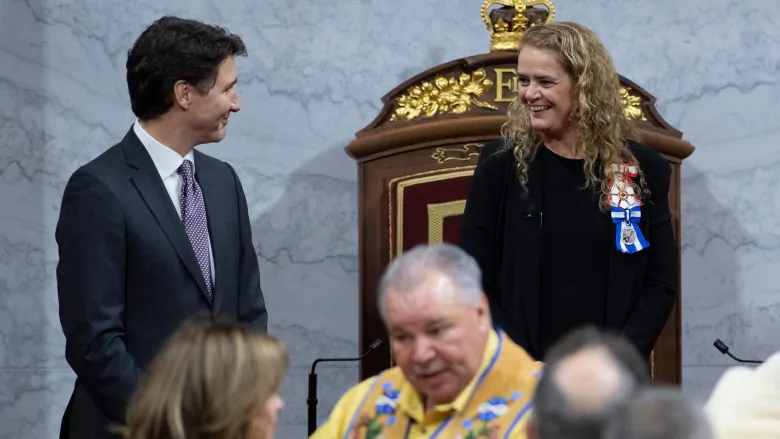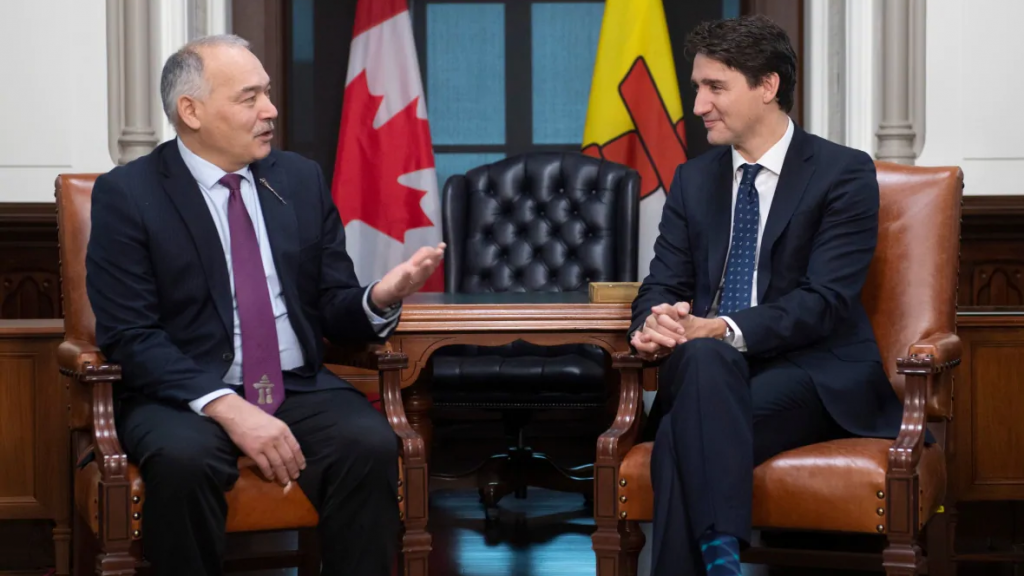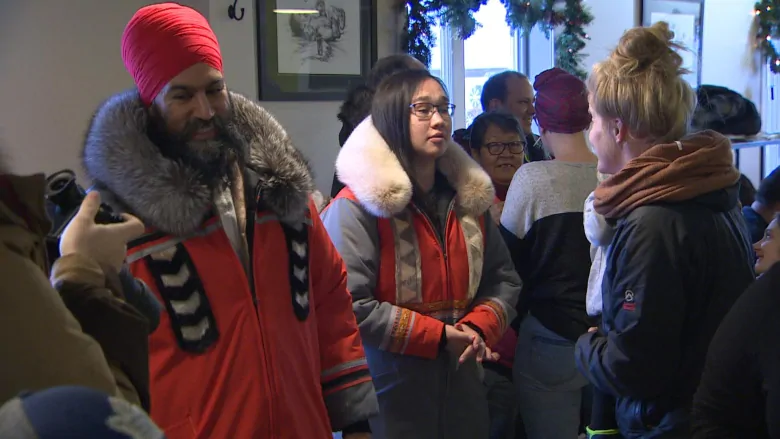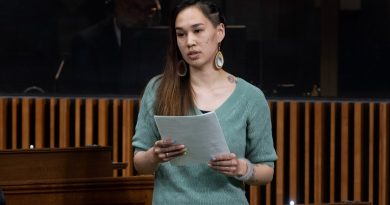The North sees little mention in Canadian federal throne speech

In a promise to fight climate change, “walk the road of reconciliation,” and to keep Canadians healthy, Gov. Gen. Julie Payette opened a new session of Parliament Thursday.
But her 28-minute speech — written by the Prime Minister’s Office and addressed to members of parliament — had little to say about the North.
The speech that explains the new Liberal government’s mandate did, however, focus on issues that matter to northerners, like climate change and reconciliation.
“Canada’s children and grandchildren will judge this generation by its action — or inaction — on the defining challenge of the time: climate change,” Payette said.
“The government will continue to protect the environment and preserve Canada’s natural legacy. And it will do so in a way that grows the economy and makes life more affordable.”
Nunavut Premier Joe Savikataaq
The throne speech highlighted a need to make renewable energy more affordable, but it also promised to follow through with carbon pricing across Canada.
In response to the speech, Nunavut Premier Joe Savikataaq says Nunavut is working to adapt to climate change. In a recent meeting with the prime minister, Savikataaq told Justin Trudeau that Nunavut needs help with energy efficient infrastructure.
Because Nunavut runs on diesel for electricity, Savikataaq said a carbon tax is just another financial drain for the territory. What Nunavut needs is more help adapting to the changes it faces in the North because of climate change, he said.

“We don’t have any alternative energy source and until we do, there’s nothing we can do to encourage people to go to a different alternative energy source,” he said.
“We want to do our share and we are, by re-insulating and getting more energy efficient diesel generators, but in the big picture what we contribute in green house gas in Nunavut is very miniscule.”
Better health care for Indigenous people
The throne speech was heavy in its references to Indigenous Canadians, whose contribution as citizens Payette called an “Indigenous genius.”
“Reconciliation will remain a core priority for this government,” Payette said.
The government promised to follow through with the recommendations by the Truth and Reconciliation Commission and the National Inquiry into Missing and Murdered Indigenous Women and Girls.
The speech said the government will work to co-create legislation with Indigenous Canadians this year to implement the United Nations Declaration on the Rights of Indigenous Peoples. That declaration speaks of land, language rights and equality.
Inuit Tapiriit Kanatami (ITK) President Natan Obed told CBC that this timeline is ambitious, but says it’s what Inuit want.
The national Inuit organization says it is looking forward to crafting legislation with the federal government for better health care and mental health support for Inuit regions, that is consistent with what all Canadians expect.
“Securing investments in infrastructure and housing remain a high priority in Inuit Nunangat,” ITK said in a statement. “ITK looks forward to working with ministers of the Crown to build on the progress made during the last mandate.”

‘It is a minority’: Nunavut premier
It’s been about a month-and-a-half since a Liberal minority government was elected, but no parliamentary business takes place until this speech from the throne is delivered in the senate.
Because Canada has a minority government, an election could be called whenever a motion of non-confidence is brought through. The throne speech itself must be voted on by members of the House of Commons. That vote, which will come later, is itself a vote of confidence in the government.
The speech highlighted the priorities of the New Democratic Party (NDP), like affordable housing and pharmacare. Nunavut’s riding is NDP with the election of MP Mumilaaq Qaqqaq.
Savikataaq says the minority government is not likely to impact how the territory works with the feds, but says Nunavummiut are sure to see the Liberals work differently.
“It is a minority and they will have to work with other parties.”
“It won’t affect us, how we work with the government, but the government will have to work differently in terms of how it governs this country of ours … It has to work with the other parties, there will be a lot more discussion between the parties.”
Related stories from around the North:
Canada: Canada’s social-democratic party leader promises to push for climate action in Nunavut’s capital, CBC News
Finland: Finnish gov agrees to formation of Sámi Truth and Reconciliation Commission, Yle News
Iceland: Former U.S. Secretary of State John Kerry calls for climate action at Arctic Circle assembly, The Independent Barents Observer
Norway: Political earthquake shakes up Northern Norway, The Independent Barents Observer
Russia: Russia removes critical voices ahead of Arctic Council chairmanship, claims Indigenous peoples expert, The Independent Barents Observer
Sweden: Sweden’s FM calls for more EU involvement in Arctic as country hosts EU Arctic Forum, Radio Sweden
United States: US Senate passes bill with funds for missing and murdered Indigenous women, Alaska Public Media



